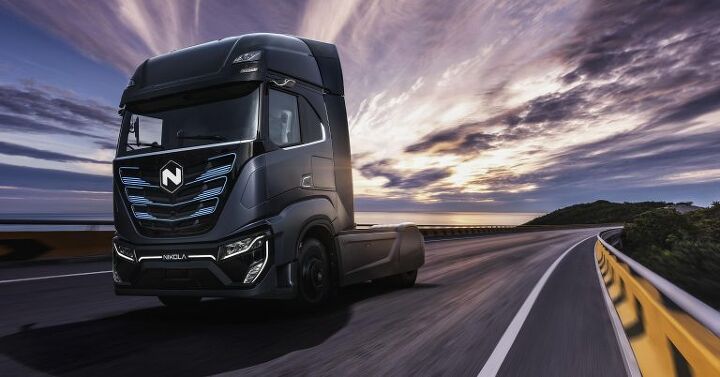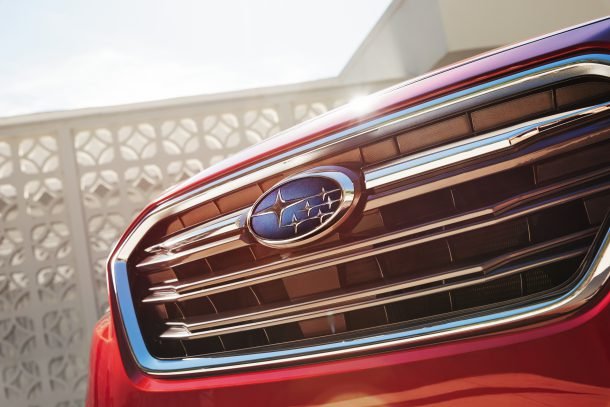#Reports
Study: De-funding the Police Seems to Reduce Traffic Stops At Least
As you’re undoubtedly aware, there has been a lot of pressure to de-fund the police this year following the highly publicized death of George Floyd in Minneapolis, Minnesota. The city became the epicenter of violent and peaceful protests demanding police departments be stripped of funding that has since spread across the rest of the United States. Some cities, including Minneapolis, have already agreed to cut their budgets or abolish departments entirely.
While most of the ramifications of these decisions would be off-topic for this particular forum, a study came out this week examining how on-road policing has been impacted. Unsurprisingly, the number of traffic stops in Minneapolis has declined immensely. Since May 25th, Bloomberg’s CityLab estimated the department had made 80 percent fewer stops each week.
Nikola Responds to Criticisms of Fraud
Following a scathing report from Hindenburg Research that called Nikola a fraudulent company largely dependent upon the blind excitement surrounding electric vehicles, the accused has finally issued a response. On Monday, Nikola released a bulleted letter suggesting the report was the act of an opportunistic short seller that was attempting to take advantage of the period immediately proceeding the announced partnership with General Motors. While Hindenburg didn’t exactly hide that aspect of itself in its own report, it frames the business as only profiting off companies that weren’t above board to begin with. It also received support from Citron Research, which said it likewise thought Nikola needed to be scoped out by the Securities and Exchange Commission (SEC) and promised to help pay for half of any legal fees incurred as a result of Hindenburg’s reporting.
Meanwhile, Nikola was crafting its rebuttal after founder Trevor Milton explained he had to wait on a comprehensive response because he was already in contact with the SEC. As his constant Twitter updates started to become counterproductive, this was likely a wise decision. The response dropped on Monday, clearing a handful of items up while making a bunch of other aspects seem even more suspect.
Scathing Report Accuses Nikola of Fraud
While we’ve suspected that electric vehicle startups and green tech, in general, is probably a little overvalued, we’ve never accused anyone of outright fraud. Burgeoning automakers have a tendency to over promise and under deliver. Throughout history, this has occasionally gotten them into serious trouble. But it’s also how the game is played, especially when you’re new to the scene and need to distinguish yourself from giant entities who would just as soon crush you in lieu of risking the eventual competition. Nikola is a perfect example of this and built a hype train so swift that legacy brands could only hope to buy it out or invest and share in the fruits of its labor before it sped away.
But what if it wasn’t ever growing any industrial fruit?
That’s the claim being made by Hindenburg Research — which specializes in short selling, pointing to firms on the cusp of financial disaster (hence the name), and attempting to bust businesses the Securities and Exchange Commission (SEC) might be interested in. The financial research firm has suggested that Nikola founder Trevor Milton had misrepresented what the company was actually capable of in terms of product, with the intent to mislead investors into thinking the company should be incredibly valuable. It reads like a hit piece and was accused by Milton of being just that. However, there are issues brought up in the report that are still worth examining.
Study: Global Recession Negatively Impacting EV Sales (Duh)
Today’s study comes straight from the memoirs of Captain Obvious. Apparently, an economic recession isn’t what you want when you’re vying to sell factory fresh automobiles beyond the confines of rock-bottom prices. There might even be a correlation between being broke and lacking the ability to purchase items in general. At least, that was the takeaway from a cutting-edge assessment recently conducted by Auto Trader in the United Kingdom.
In an attempt to keep tabs on the public’s level of interest in reference to electric vehicles, the outlet has been surveying people at semi-regular intervals. Back in January, it asked 2,300 consumers ‘waddya buying,’ only to learn that 17 percent had their hearts set on a battery electric vehicle. That’s impressive considering less than 10 percent of automobiles in the UK utilize electricity for propulsion and most of those happen to be hybrid models. But the trend toward BEVs has shifted rather dramatically since the COVID pandemic took hold.
A follow-up questionnaire from August (this time with 2,700 respondents) shows demand has waned immensely. Only 4 percent of respondents said they were planning on getting themselves a battery electric vehicle.
J.D. Power Reveals What Owners Find Annoying About Automotive Technology
Today’s automobiles are loaded with the kind of technology our grandparents could only dream about. Unfortunately, some dreams aren’t all they’re cracked up to be, and we’ve often bemoaned the many annoyances associated with modern vehicles.
J.D. Power recently shared its Tech Experience Index (TXI) Study, which has been modified to better assess specific features American drivers did and did not enjoy. The general takeaway seems to be that the average motorist feels pretty good about outward-facing cameras and anything else that improves a car’s outward visibility (handy in an era of extra chubby structural pillars).
However, the more intrusive safety inclusions that actively modify how the vehicle responds to the world around it didn’t seem to get nearly as much love, with many respondents suggesting they don’t trust the systems to behave in a predictable manner. It’s something we’re in broad agreement with and echoes many of the complaints we’ve heard from readers, friends, or rattling within our own skulls.
China's Geely Adjusts End-of-year Outlook
China’s Geely Automobile Holdings reported a first-half net profit drop of 43 percent on Monday, a tumble that forced it to reduce end-of-year targets. As you may have expected, the coronavirus was named as the biggest obstacle it had to overcome, especially in its home country. That left Geely (parent to Volvo, Lotus, Proton, Lynk & Co, Emerald Automotive, London EV and more) revising 2020 volume estimates by 6 percent to 1.32 million vehicles against the 1.36 million deliveries it enjoyed through 2019.
While enduring a bad financial year in 2020 is hardly breaking news for any major automotive manufacturer, Geely is one of many Chinese firms with global aspirations. Its role as Daimler’s second-largest stakeholder and ownership of Volvo Cars (with which it is planning a full merger) arguably makes it the corporation that’s closest to achieving that goal, too. Yet the current economic and geopolitical situation served to undermine its ultimate goal of becoming Asia’s answer to Volkswagen Group.
Are Modern Driving Assistance Features Unreliable? AAA Researchers Say Yes
The American Automobile Association (AAA) is recommending automakers limit the use of advanced driving aids after concluding they’re not really up to the challenge of providing reliable safety.
Over the past two years, AAA has focused on testing crash prevention systems to see if they’re all manufacturers claim — deciding that while many are useful in some instances, they’re far too inconsistent to be considered reliable safety nets. Like us, the group worries that making these features commonplace has created a false sense of security among drivers. While one might assume advanced driving aids have to be halfway decent to be put into vehicles, AAA’s pedestrian detection test from 2019 showed they’re anything but consistent.
On Thursday, America’s favorite motor club returned to report on its latest findings on five systems currently offered by the industry. For the test, AAA selected a 2019 BMW X7 with Active Driving Assistant Professional, 2019 Cadillac CT6 with Super Cruise, 2019 Ford Edge with Co-Pilot360, 2020 Kia Telluride with Highway Driving Assist, and a 2020 Subaru Outback with EyeSight. The group was sent to numerous testing sites in California, Utah, and Nevada, and given a 4,000-mile shakedown on public roads — where the outfit found the systems averaged a misstep or disengagement roughly every 8 miles.
Report: Automotive Industry Borrows $132 Billion Through Pandemic
The automotive industry has borrowed an estimated $132 billion since the world started taking the coronavirus more seriously, according to a recent analysis by Bloomberg.
Despite migrating around the planet months before anyone thought to close down a single airport or suggest masks were necessary, March is broadly viewed as the start of the pandemic in the Western World, as that’s when most governments started taking direct action and businesses started looking for handouts. Still, it’s exceptionally difficult to follow the money if you didn’t devote yourself entirely to the task of tracking payments while under shelter-in-place orders.
We do know that a lot of money was being thrown around, however. Car dealerships were among the largest recipients of Paycheck Protection Program (PPP) funds in the United States, garnering anywhere from $7.5 billion to $12 billion in government aid to maintain staff. Plenty of criticism over exactly where that money went arose as the press questioned which businesses were more deserving and who was just taking advantage of the system.
But it’s only the tip of the iceberg. PPP funds don’t need to repaid unless they weren’t earmarked entirely for payroll purposes; the government also used the program to send over $600 billion to support banks in extending low-interest loans to companies during the pandemic. The automotive industry was one of the largest beneficiaries of that arrangement.
Los Angeles Car Crime Reaches Record High
Los Angeles car thefts hit record highs in the second quarter of 2020, with some claiming the matter is the direct result of the coronavirus pandemic. Despite LA being infamous for car crime, the general trend over the last decade was a downward one — until very recently. A report from the USC Annenberg School for Journalism’s non-profit analysis publication Crosstown analyzed data from the Los Angeles Police Department, citing a 57.7-percent uptick in vehicle theft between April and June against the same period in 2019.
COVID-19 was theorized to have only been part of the problem. While the study notes that lockdown measures meant more vehicles sitting around unattended for longer periods of time, making them tempting targets for thieves, it also references the California Judicial Council’s passing of new zero-dollar bail policy as a contributing factor. Enacted in April, Los Angeles County District Attorney Jackie Lacey said the measure was taken so courts could set individual bail for those accused of looting. Meanwhile, most non-violent crimes (and some low-level felonies) are supposed to be bail-free, allowing jail populations to be kept at a minimum during the pandemic.
Dodge Dubbed Most Appealing Mainstream Brand by J.D. Power
Dodge was deemed the mainstream automotive brand with the most appeal in a recent survey conducted by J.D. Power. While that likely means a quadrant of our readers will probably discount it outright, these accolades are always fun to mention so they can be picked apart in the comments. Still, it really shouldn’t be all that bewildering to see Dodge ranking high on the list. The brand’s fleet of V8-equipped products certainly sets it apart from its rivals, even if its lineup isn’t quite so varied as its historic rivals.
The conflict comes when you see what Dodge is surrounded by. J.D Power’s Automotive Performance Execution and Layout (APEAL) study tabulates owner assessments of vehicles after 90 days of ownership using some pretty broad metrics ( available here). The goal here is to uncover which brands offer the best overall experience. Apparently, Dodge owners aren’t quite as happy with their purchase as those who went to a Porsche dealership. Hardly surprising. Yet we were fairly gobsmacked to see the same was true for both Lincoln and Cadillac.
Tuning In: Nielsen Podcasting Study Shows Promise for Automotive Advertisers
When I was a young lad, I had a box set of the goofball quiz show You Bet Your Life. Hosted by deceased comedy legend Groucho Marx, the program aired on both television and radio just as they were beginning to swap roles in terms of market dominance in the mid-20th century.
After ribbing guests, Marx would pause to acknowledge the sponsor. More often than not, they were Chrysler products — especially the now defunct DeSoto brand. While I had no idea if Groucho actually cared about the cars beyond the paycheck they offered, something about the format of having someone you actually liked pushing the product stuck with me. I’ve been a fan of DeSoto for years, despite having been born decades after it stopped existing as a brand.
It seems things might be coming full circle. With television now losing prominence to the internet, advertisers, in search of new avenues for income, and have stopped at podcasts. A recent Nielsen study estimated that roughly half of would-be vehicle shoppers visited a website for more information if they heard about it via an audio-focused medium with a strong personality behind it.
J.D. Power Says Drivers Still Loyal to Subaru, Lexus
J.D. Power’s Automotive Brand Loyalty Study dropped this week, with Subaru and Lexus predictably topping the charts. Subaru actually edged out Toyota by a hair in the mainstream segment by retaining 60.5 percent of its owners, and is assumed to be aided by younger generations just getting into vehicle ownership. This is something we can back up anecdotally, as many drivers look back fondly at the nameplate and are eager for a second helping.
If your author had a nickel for every person that happily reminisced about the hand-me-down Subaru Legacy or Forester wagons they drove during their formative years, he would have a jar full of coins wasting space on a shelf somewhere because nickels aren’t particularly valuable.
Study Says Autonomous Taxis Will Cost Users More Than Car Ownership
When Sir Thomas More coined the term “utopia,” he lifted two words from Ancient Greek that roughly translate into “not a place.” Turns out people from the 16th century still understood satire, perhaps better than we do today. After all, we are the ones operating under the assumption that we can remap society in order to build consequence-free transportation network without a shred of humor to keep us grounded.
We may not need satire in this instance, however. A new study published in the American Journal of Public Health asks questions about how just effectively the shift to autonomy will benefit society as a whole. Industry leaders have broadly framed the shift toward self-driving as kicking down the door to an idyllic universe where no one wants for transportation, with autonomous taxis serving as the first wave of this planned paradise. The reality may be vastly different that what’s being sold, however.
On the Rebound: U.S. Auto Sales Begin Long, Slow Recovery
It’s been a long month and change for most Americans, and by no means is anyone out of the woods, either employment-wise or health-wise. Same goes for new vehicle sales, which remain depressed after falling off a cliff in late March.
The difference now is that sales are rising.
Not on a year-over-year basis, with gains made over “normal times” tallies. No, nothing like that. But they have started a slow climb out of the pit after hitting rock bottom, which represents another brick laid on the pathway to normality.
As ATPs Rise and Loan Terms Grow Obese, Trade-ins Are Less of a Trade-off
Auto loan terms have been creeping up for as long as anyone can remember. Back in 1997, the average financing period on a new car was somewhere around 54 months. That crept up to over 60 months by 2004 and has only continued to climb. Over the past decade, the typical automotive loan term has ballooned by almost 30 percent. According to an analysis by Edmunds, the average financing period on a new vehicle sold in the United States surpassed 70 months in March of 2020.
While automakers’ recent introduction of loans extending up to 7 years (especially now that COVID-19 is hampering sales) has exacerbated the issue, we were already sitting on a 69-month average in October of 2019. Why would someone voluntarily agree to such a lengthy agreement? They may not have much of an alternative due to similar growth in vehicle transaction prices.






























Recent Comments